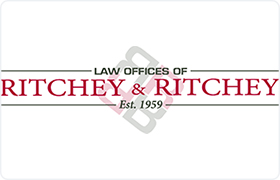Shelby Trusts Lawyer, Alabama
Sponsored Law Firm
-
 x
x

Click For More Info:
-
Ritchey & Ritchey
1740 Oxmoor Road Birmingham, AL 35209» view mapEstate Planning, Wills & Probate, Elder Law Small Firm Attention. Large Firm Capability.
Ritchey & Ritchey, one of the oldest law firms in Birmingham as well as Alabama, was founded in 1959 on a simple premise: provide clients with guidance and expertise.
205-271-3100
Sanford D Hatton Jr.
Real Estate, Trusts, Elder Law, Wills & Probate
Status: In Good Standing Licensed: 25 Years
Jordan Mccay Copeland
Real Estate, Trusts, DUI-DWI, Products Liability, Personal Injury
Status: In Good Standing
Jordan Copeland
Real Estate, Trusts, DUI-DWI, Personal Injury, Products Liability
Status: In Good Standing Licensed: 17 Years
 Ferris Ritchey Birmingham, AL
Ferris Ritchey Birmingham, AL Practice AreasExpertise
Practice AreasExpertise
